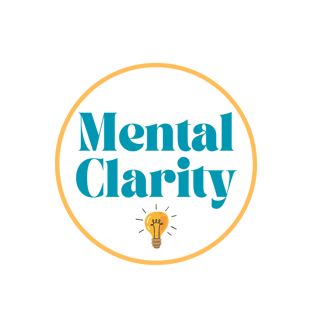Unlocking Clarity: How Journaling Can Transform Your Mind and Life
Journaling has become a popular tool for self-discovery and mental well-being, and for good reason. It’s more than just putting pen to paper; it’s an opportunity to understand ourselves on a deeper level, clear mental clutter, and create intentional change. If you’re new to journaling or wondering why this simple practice holds so much potential, here’s a look at the powerful benefits it can bring to your life.
HOMEANXIETY
5/8/20243 min read

1. Clarity Through Reflection
Journaling gives us a safe, private space to explore our thoughts and feelings without judgment. Often, our minds are crowded with competing thoughts, worries, and ideas that can feel overwhelming. Writing down what’s on our minds allows us to sort through the noise, identify our true feelings, and gain clarity.
When we take the time to reflect through journaling, we’re often able to spot patterns in our thoughts or behaviors that we might not have noticed otherwise. It can help us understand why we react to certain situations in specific ways, which in turn allows us to make conscious adjustments in our daily lives. By having a record of these reflections, we can look back and see how our understanding has evolved, giving us valuable insights into how we’ve grown and what areas may still need attention. Over time, journaling for clarity becomes a habit that sharpens our self-awareness and enhances our emotional intelligence.
Try This: Start by jotting down a daily reflection, even if it’s just a few sentences. What’s something that made you happy today? What challenges did you face? Over time, you may start seeing a clearer picture of your emotional landscape.
2. A Tool for Stress Relief and Emotional Release
Writing can be deeply therapeutic. Studies have shown that journaling can reduce stress, lower anxiety, and even improve mood by helping us process our emotions. When we put our worries and fears into words, they often feel less overwhelming. Journaling creates a safe outlet for releasing pent-up emotions, helping us work through them in a healthy way rather than allowing them to fester.
Unlike simply ruminating on negative thoughts, journaling encourages us to confront them head-on and gain a sense of control over our emotions. By externalizing our feelings, we’re better able to manage them and avoid the mental exhaustion that comes from carrying them around. Journaling also provides an opportunity to express emotions that we might not feel comfortable sharing with others, making it a personal form of emotional catharsis. This relief helps us manage stress better in everyday life, empowering us to approach challenges with a clearer and calmer mind.
Try This: Next time you feel anxious or stressed, write down your thoughts and feelings. You can also try a technique called “stream-of-consciousness journaling,” where you write whatever comes to mind for a set amount of time, without worrying about structure or grammar. This freeform approach can be a powerful emotional release.
3. Goal-Setting and Personal Growth
Journaling isn’t just about reflecting on the past; it’s also a powerful tool for shaping the future. Writing down your goals and aspirations makes them tangible, allowing you to create a roadmap toward achieving them. When we put our intentions on paper, it becomes easier to track our progress, stay motivated, and hold ourselves accountable.
Setting goals within a journal allows us to break them down into actionable steps and monitor our progress along the way. It’s not only motivating but also a reminder that personal growth is a journey. Regularly writing about our goals and what we’re doing to achieve them also allows us to see the progress we’ve made—even if it’s small, it’s still movement forward. Looking back on past entries can be incredibly empowering, as it reminds us of how far we’ve come and reinforces our commitment to continued growth and self-improvement.
Try This: Set monthly or weekly goals in your journal, and use it to track your achievements. At the end of each month, review your entries to celebrate your progress and set new intentions.
Conclusion
Journaling offers a path to greater self-awareness, emotional well-being, and intentional living. Whether you’re seeking clarity, a way to relieve stress, or a tool for personal growth, journaling can be an accessible, transformative practice. Start small, be consistent, and give yourself the freedom to explore—because the insights you gain may just transform your perspective and help you unlock new potential within yourself.
If you enjoyed this article or found it helpful make sure to check out the other awesome tips and tricks in gaining mental clarity right here on MentalClarity!
Wellness
Explore additional resources for mental clarity and focus:
metal Clarity
© 2024. All rights reserved.
